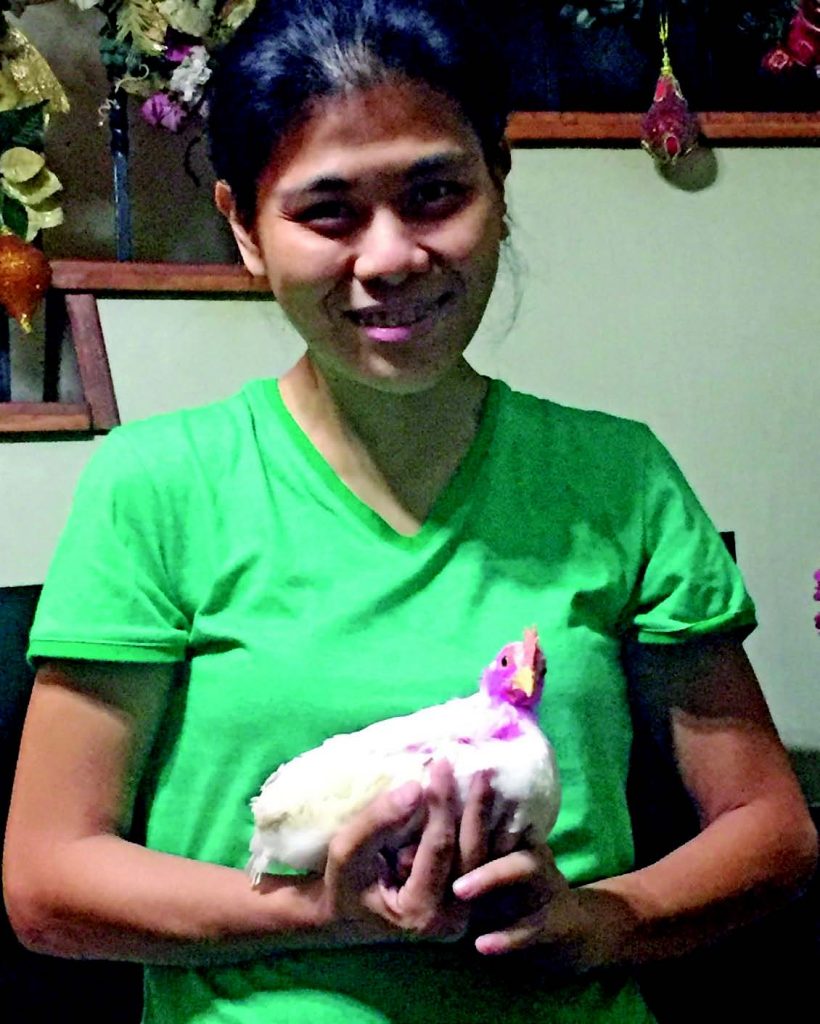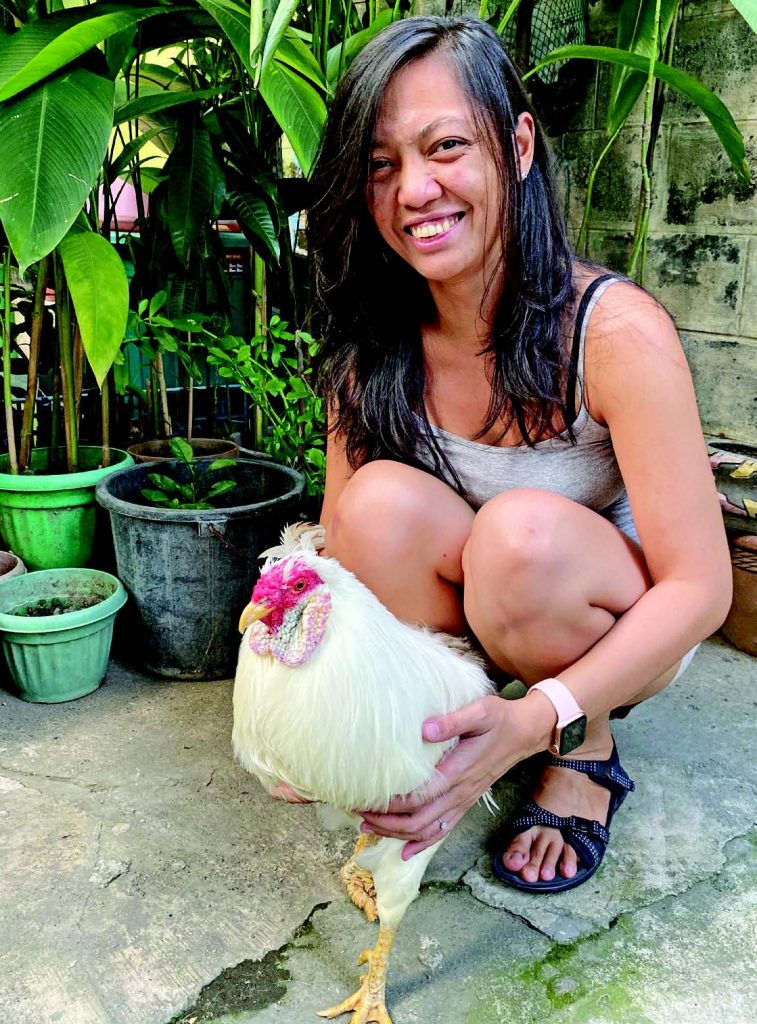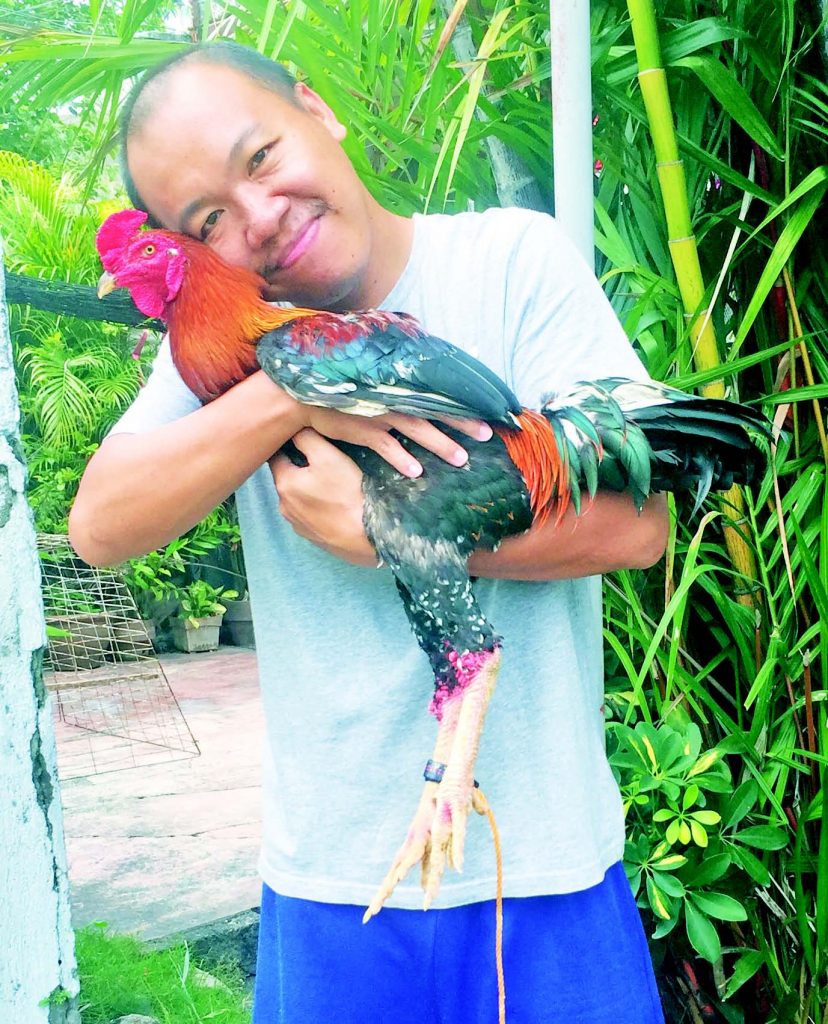Affectionate. Intelligent. Funny. We don’t normally use these words to describe chickens, but just how much do we really know about them? Descended from the wild jungle fowl, the domesticated chicken is all these and more. We’ve only (chicken) scratched the surface when it comes to understanding chicken behavior, but recent scientific research has confirmed that our feathered friends are cognitively sophisticated creatures. So the next time someone calls you “bird brain,” you might want to smile and take it as a compliment instead.
9 chicken facts
1. There are 25 billion chickens in the world, making them the most populous bird species, according to a 2011 article by Sarah Zielinski for Smithsonian Magazine.
2. Together with turkeys, they account for 99 percent of all animals killed for food in the US. Roughly 8.7 billion chickens in the US and 40 billion worldwide are slaughtered each year when they are just 6 weeks old, according to Robert Grillo’s 2014 article for the Free From Harm website.
3. Chickens use more than 30 distinct vocalizations to communicate with each other, such as when there’s food or danger, as written by Annie Potts in her 2012 book titled Chicken.
4. Chickens are complex social creatures who are able to make comparisons between themselves and others, build long-term relationships, coordinate group activities, and recognize the social status of several individuals, according to a 2012 study by Carolynn Smith and Jane Johnson for the philosophy journal Between The Species.
5. It has been found that chicks are born with an understanding of basic arithmetic, physics, and geometry, according to research by Rosa Rugani Lucia Regolin Giorgio Vallortigara published in 2010 in Developmental Science.
6. They can fly high enough to get over a fence or into a tree.
7. They also have the ability to learn from other chickens and break from established routines to come up with novel solutions to problems.
8. Chickens can recognize over 100 individual faces, even after several months.
9. Chickens express emotions such as happiness, grief, fear, enthusiasm, anxiety, and boredom.
Family, not food
Meet three fortunate fowls (and their humans) who are treated as members of the family.
Billie Princesa and Chiki Slim Shady, Quezon City

Chiki Slim Shady (gender still unknown) was found by Billie’s mom in the middle of the street during one of her early morning jogs. Worried that a cat might eat the pink-dyed chick or that the poor creature would die of exposure, Billie’s mom scooped up the young bird and brought him/her home.
Chiki bonded with Billie as soon as they met later that day, hopping onto her hand and following her wherever she went. Not sure how to care for her new charge, Billie asked for advice from friends on Facebook, who suggested feeding the wee chick with crushed rice and keeping him/her warm with a light.
QUESTION: HOW DO PEOPLE REACT WHEN THEY FIND OUT ABOUT CHIKI?
Billie: Some people find it amusing and others find it weird because they think chickens are food.
Q: WHAT ARE SOME COMMON MISCONCEPTIONS PEOPLE HAVE ABOUT CHICKENS?
B: Aside from perceiving chickens as nothing but food, a lot of people also think that chickens are not suitable as pets as they are not affectionate like the conventional pets (cats and dogs). Chiki demonstrated a will to socialize and bond with me since he/she often follows me around when I get home. Sometimes, Chiki just likes to sit on my hand or play by pecking my hand playfully while I pet him/her.
Q: WHAT’S YOUR FAVORITE THING ABOUT CHIKI?
B: When I call Chiki, he/she comes or looks at me and plays with my hand. Chiki is very affectionate, curious, and explorative.
Jean Alfonso-Decena and Hiro, Mandaluyong City

Years ago, Jean and her husband took their daughter Easter egg hunting at an upscale mall. One of the establishments handed out a small box containing a chick, whom they all fell in love with.
Eight years later, that chick is now the alpha male companion animal in their household. Hiro grew up to become a handsome and assertive rooster who is feared by the family’s other animals (two dogs and three cats).
QUESTION: HOW DO PEOPLE REACT WHEN THEY FIND OUT ABOUT HIRO?
Jean: People have mixed emotions about Hiro. They find him cute, then get scared, then get confused how we live with him. They’re unsure what the dynamics are: how he survived the urban life, especially living in central Manila, and how he gets along with everyone else. He usually shocks my colleagues when I take meetings from home because he intentionally crows loudly when I have meetings… He’s extra loud and persistent when I have my woman boss on an online meeting. He’s so funny.
Q: WHAT ARE SOME COMMON MISCONCEPTIONS PEOPLE HAVE ABOUT CHICKENS?
J: People automatically think that Hiro’s raised for either eggs (they assume he’s a hen) or meat. And then others think he brings diseases and that he attacks anybody and everybody. Then there are still some others who think he’s with us for cockfighting. They are shocked to find out that he’s chosen to live with us. But the moment we say we’re a vegan family, they immediately get it.
Q: WHAT’S YOUR FAVORITE THING ABOUT HIRO?
J: I love it when he comes over to the door screen if he sees any one of us open the door. That’s his signal for us to pet him or just be with each other… When the door is opening, he stays by the opening quietly, waiting to be rubbed, [to] chitchat, or [to engage in a] staring game. He likes to listen to us make sounds or chat with him. When a human or animal is standing in his area, he becomes very protective, more so than a guard dog.
Dan Mark Aguilos and Crooky, Davao City

Dan’s chicken, Crooky, was given to him by an uncle who used to raise chickens as a hobby and for profit. Aside from Crooky, Dan received a hen who eventually laid eggs that hatched. But because he also had cats at home, he decided to return the hen and chicks to his uncle. Crooky, a Basilan chicken, was able to stay because Dan’s cats and small dog couldn’t mess with him.
Q: HOW DO PEOPLE REACT WHEN THEY FIND OUT ABOUT CROOKY?
D: When they see me with my chicken, they say, “Wow, that’s a huge chicken, it has a lot of meat already,” or, “Wow, is that a Basilan? Cool!” I just laugh and answer them, “Yep, he’s my alaga and lucky charm.” People don’t usually bother to ask more questions because everybody here is used to seeing chickens in the neighborhood. They think if you have a rooster, you’re keeping him for cockfighting.
Q: WHAT ARE SOME COMMON MISCONCEPTIONS PEOPLE HAVE ABOUT CHICKENS?
D: Probably the number one misconception is that chickens are dumb. They are viewed as a joke, and as early as childhood, we use the word “chicken” when saying that someone is cowardly.
Q: WHAT’S YOUR FAVORITE THING ABOUT CROOKY?
D: My favorite thing about Crooky is that he is a fighter yet warm and gentle at the same time… Chickens are NOT dumb. In fact, they are one of the bravest, smartest, most intelligent, most analytical animals, and so much more. When you observe and empathize with a chicken, you will learn why they behave the way they do. You will learn that just like any other animal, they desire freedom most of all. It’s just unfortunate that we have domesticated them so much that we forget they are still animals…
This appeared in Animal Scene magazine’s February 2020 issue.
You might want to read:
– Get this swing for your chicken to enjoy summer
– Boy who rushed chicken to hospital has been awarded by his school
– Chickens are the new therapy animal you need






